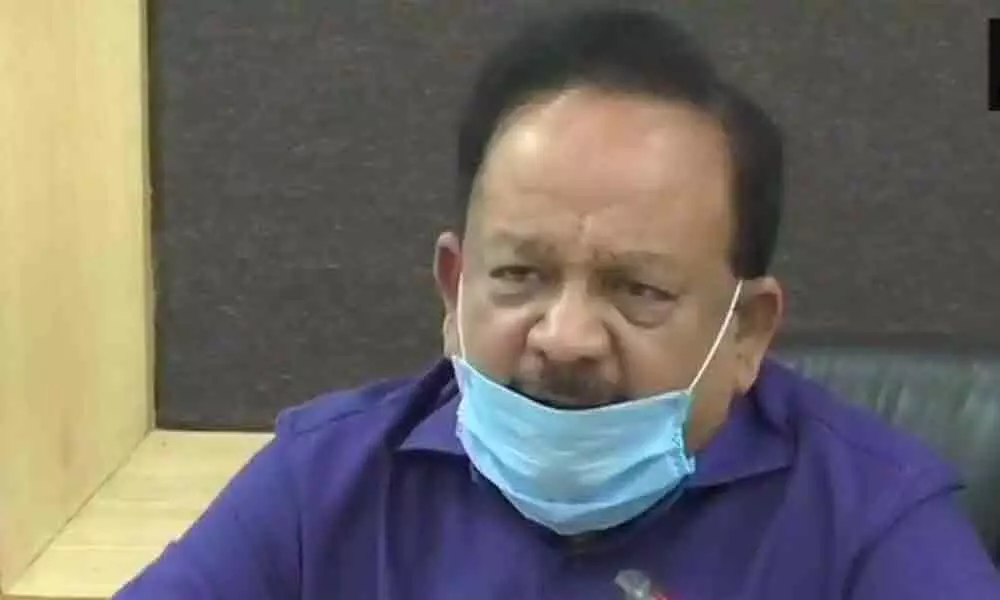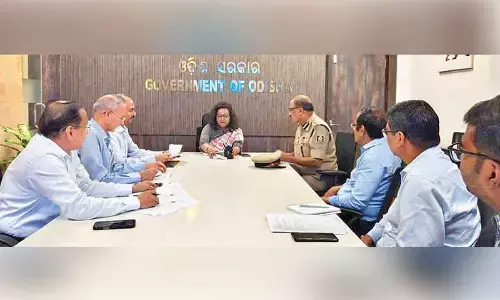Reinfection cases misclassified, ICMR to analyse: Minister Harsh Vardhan

Union Health Minister Harsh Vardhan
Union Health Minister Harsh Vardhan on Sunday stated that the resurgence of reinfection of the Sars-CoV-2, which causes COVID-19, is a misclassification and Indian Council of Medical Research (ICMR) is commissioning a study to find the veracity behind such incidents.
New Delhi: Union Health Minister Harsh Vardhan on Sunday stated that the resurgence of reinfection of the Sars-CoV-2, which causes COVID-19, is a misclassification and Indian Council of Medical Research (ICMR) is commissioning a study to find the veracity behind such incidents.
"It is very important to differentiate between mislabeled reinfection from actual reinfection," he stated while hosting his weekly webinar, Sunday Samvaad, where he interacts with his social media audience.
"Even though there are sporadic reports of reinfection surfacing in various states, careful analysis of the ICMR database reveals that many of these cases have actually been misclassified as reinfection," the minister said.
The clinical diagnosis of Sars-CoV-2 is mainly on RT-PCR which also detects dead-virus sheds for prolonging and varying period of time. The dead virus is sometimes sequestered in various organs and is intermittently shed for several weeks or even months after recovery. However, such a patient is considered as recovered and non-infectious," he explained.
Vardhan also reasoned that the hyper-sensitive characteristic of RT-PCR test is also a reason in which people test positive for the virus despite being recovered. "Due to the inherent characteristics of RT-PCR test to detect dead virus, intermittent periods of positivity after a negative test report may be documented. Therefore, any lab confirmed case, if tested over a duration of several weeks, may have intermittent positive, negative and again positive results," he added.
"Actual reinfection would mean a fully recovered person getting infected by a freshly introduced virus in his/her body, belonging to the same or different strain," Vardhan concluded.
Besides, he also informed that ICMR is commissioning a study to understand the true burden of re-infected cases. "Results will be shared in a couple of weeks", Vardhan added.
IANS had earlier reported that Sars-CoV-2 could live in the body of the infected person for more than three months after his/her recovery. However, the infectivity reduces to a point where the person becomes non-infectious.
"Even if the patient has recovered, the residual virus sustains in the body and could show PCR positivity (a term used for cases detected positive via RT-PCR tests) for three months," Dr Mahesh Langa, Infectious disease expert at Columbia Asia hospital, Pune, had informed.
"The virus gets isolated in the throat of the patient. So when a swab from the throat is taken for the test in RT-PCR, the result comes positive. But it doesn't mean that it's re-infection," he added.










